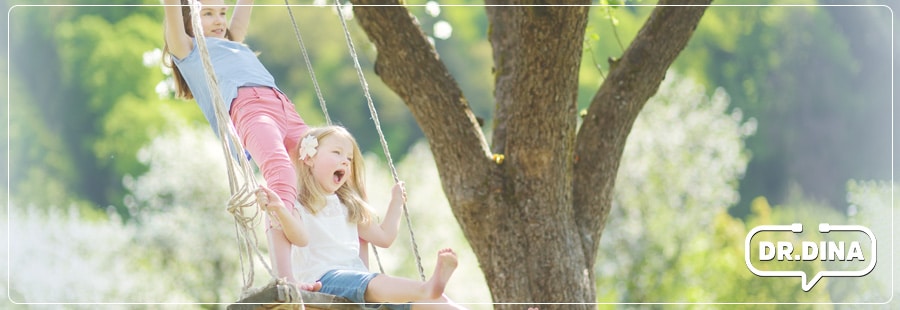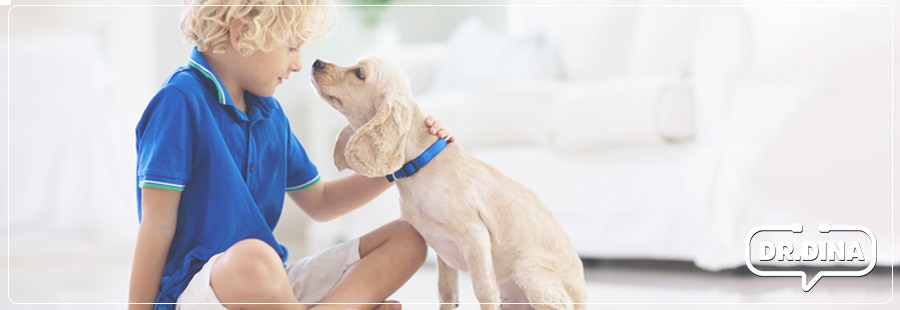Depression in Childhood – Causes and Signs
Every parent wants their child to enjoy good health and happiness. No parents wish for their little one to suffer from childhood depression, and we all want to help the child with depression or low mood to feel better.
Many parents ask about depression causes in children, signs of depression and anxiety, and important ways to help your child feel their best.
This blog summarizes important depression causes in children and a few ways to deal with this situation effectively.
If you think your child has severe depression, anxiety, or other emotional disturbance, or if you are concerned for your child’s mental or physical health, please see your healthcare provider or go to the emergency room if you are worried about their safety.
Important Depression Causes or stressors
Several stressors affect the emotional state of your child. Here we have summarized a few fundamental depression causes:
Family instability
Research demonstrates the correlation between depression and emotional disturbance in children due to family instability.
Tension and conflict between caregivers and other family members can trigger psychological and physiological disturbances in children.
Indeed, many children do not develop depression or mental health concerns when living through instability, but some do, as these conditions can be stressful and anxiety-provoking.
Family History of Depression
Children are more likely to suffer from depression and anxiety if there is a family history of the same. It is difficult to tease apart what is nature is versus nurture.
In other words, does the child have a higher risk of mental health problems due to genetics alone, or is it from something in their environment, such as watching a family member suffer from the emotional burden or financial or other challenges? It is multifactorial.
Other important causes of depression in a child include environmental factors, genetic vulnerability, various life events, and biochemical disturbances.
Signs of Depression in Teens and Children
If you have a child with depression, they may have the following depression symptoms:
- Act more argumentative or aggressive
- Act impatiently
- Be sleepier than usual (or sleep more or less)
- Eat more or less
- Be more forgetful
- Be distracted
- Be more sensitive
- Get sick more often
- Complain of frequent headaches or stomach aches
- Have a change in their school performance
- Be less interested in previously enjoyed activities
- Have thoughts of death or suicide
- Cry or have tantrums or meltdowns.

Depression treatment for Childhood Depression
Early detection of depression in childhood leads to early intervention and recovery.
Major depressive disorder in children and adolescents is a prevalent condition with severe physical, emotional, social development impacts.
Risk factors include having parents who have battled depression before them and being exposed to parental conflict or poor peer relationships, leading to deficiencies in problem-solving skills while also fostering negative thoughts about oneself at an early age.
Cognitive-Behavioral Therapy:
Cognitive-behavioral therapy techniques focus on identifying the cognitive distortions the child experiences. For example, according to research, a child with depression may have negative mental perceptions that lead to cognitive distortions, leading to flawed assumptions about the environment.
Cognitive-behavioral therapy covers domains such as cognition, behavior, and physiology. In these domains, patients learn to rectify their negative thinking, enhance social skills, assertiveness, physical learning, and various mind relaxing techniques to soothe themselves.
Cognitive behavior therapy techniques improve mood disorders, reduce depression symptoms, and increase confidence in kids who receive it.
Family Therapy
Family therapy focuses on the family within a ‘system’ and how family interactions may be contributing to the children’s mental health challenges. Family therapy focuses on family communication and relationships, looking for solutions and alternatives to the problem, or understanding the family dynamics differently. This therapy can help lessen depression symptoms.
Parent-Child Therapies
Parent-child therapies are best used in younger children. They focus on building parent-child relationships through play.
When parent-child relationships are strengthened, children feel better about themselves and develop more confidence.
Depression Medication
There are a variety of medications available for mental disorders such as childhood depression. Drugs are not commonly prescribed for younger children but may be prescribed to younger children and adolescents. A psychiatrist, family doctor, or pediatrician can prescribe medication.
Therapists typically recommend starting therapy, and medication is considered if therapy alone is not helping. However, evidence demonstrates that children who receive treatment along with medication, if needed, have better outcomes.
Medication alone is inferior compared to medication plus therapy. Most commonly, selective serotonin reuptake inhibitors are used to decrease symptoms of depression in children and should be reviewed with your physician.
Depression responds best to a multidisciplinary and well-designed approach to enable a child or teen to feel better and decrease the risk of reoccurrence and persistence later in life. If you or your child has severe depression, please talk to your health care provider.
Animal Assisted Therapy
Animal-assisted therapy has been getting more attention recently as it grows in popularity.
In this therapeutic style, under expert supervision, a well-trained companion animal is used to help children with symptoms of depression who suffer from mental disorders such as major depression, emotional distress, and anxiety to feel better.

Important note:
If you find signs of depression and anxiety in your child, please connect with your healthcare provider.
If you are worried about your child’s safety, please go to your nearest emergency room.
Delayed assessment and management can prove more challenging. The goal is early identification and treatment for the best outcome.
Try to have an open dialogue with your child about how they are feeling.
What stresses do they face? What troubles them? Do they have symptoms of depression? Do they think they would benefit from chatting with someone who can help teach the strategies to best deal with feelings of sadness or anxiety?
An open and honest conversation can prove very helpful for your child. In addition, normalizing how common it is to suffer from emotional disturbance can reassure your child, who may have heightened anxiety if they feel alone in their struggles.
USEFUL TIPS:
- Please do not ignore any signs of depression in your child. While emotional highs and lows are average for kids and adults, persistence in a low mood, anxiety or decreased function due to emotional challenges needs to be assessed.
- Early identification, assessment, and treatment lead to a better outcome.
- Talk to your doctor or therapist if you have concerns.
- Get help! There are many treatment options and many mental illness health experts to help your child and family.
FAQs – Frequently Asked Questions
What is Major Depressive Disorder?
The most prominent symptom of major depression is a severe and persistent low mood that can sometimes appear as irritability or an inability to enjoy activities that would otherwise be enjoyable.
When do signs of mental disorders or mental health issues occur in children?
When symptoms first appear, they often occur in early childhood. However, some disorders may develop during the teenage years, and school-age children with mental illnesses are at risk of being undiagnosed or improperly diagnosed.
When do you seek mental health professional help with children?
Many children with these symptoms may need a mental health evaluation. These include a significant drop in school performance or poor grades, withdrawal from activities like friends and family (or even just socializing), excessive hyperactivity that is constant or frequent aggression, or “acting out.”
If I change my child’s diet, will that improve them?
A healthier diet can have an incredible effect on your child’s health, helping them maintain a good weight and avoid various problems. However, dietary changes are rarely associated with a profound change in mental health concerns in kids.
Is sugar or a food allergy responsible for anxiety or depression in kids?
A diet too high in sugar can cause symptoms of fatigue, slowed thought processes, and irritability. They can also lead to aggressive behavior or depression. Food allergies do not trigger anxiety or depression. While healthful eating can improve mood and provide more energy, it is not a cure for mental health disorders alone.
What is Seasonal Affective Disorder?
This is a type of depression called “Major Depressive Disorder with Seasonal Pattern.” Seasonal Affective Disorder causes depression or low mood when the sufferer has less exposure to sunlight, such as in the winter months.
What is the difference between clinical depression vs. persistent depressive disorder?
Clinical depression and persistent depressive disorder are the same entity. Clinical depression is sometimes called Major Depressive Disorder and is one of the persistent depressive disorders.
How do doctors’ diagnostic and statistical manuals help disorders?
The DSM-IV-PC algorithms begin by advising the physician to rule out medical illness or substance abuse as a cause. Then, the manual includes an extensive section on clues that will alert them if there may be something else at play, such as masquerading psychiatric symptoms.
Can a child have bipolar disorder?
Bipolar disorder is a mental health disorder that changes mood, energy, and ability to function. People with bipolar disorder experience extreme emotional changes that occur during distinct periods of days to weeks, called mood episodes. Bipolar disorder is possible in children. It occurs most often when the child becomes older and may manifest as mood swings that range from hyperactivity or mania to depression’s depths of despair (depression).
What is Premenstrual Dysphoric Disorder?
In premenstrual dysphoric disorder, the same criteria for diagnosing symptoms of depression in children and adults is used, but it only occurs before a girl’s menstrual cycle.
What is treatment-resistant depression?
Unfortunately, 50% of patients do not experience adequate relief from major depression when treated with an antidepressant. That is why it is best to work with your mental health professional to ensure you have the right mix of therapy and medication to allow you to feel your best. If you have a persistent depressive disorder, please follow up with your provider.
#YouGotThis

Dina is a wife, mother of 4, and adrenaline junky. She loves to share children’s health information from her professional and personal experience. More About Dr Dina.












